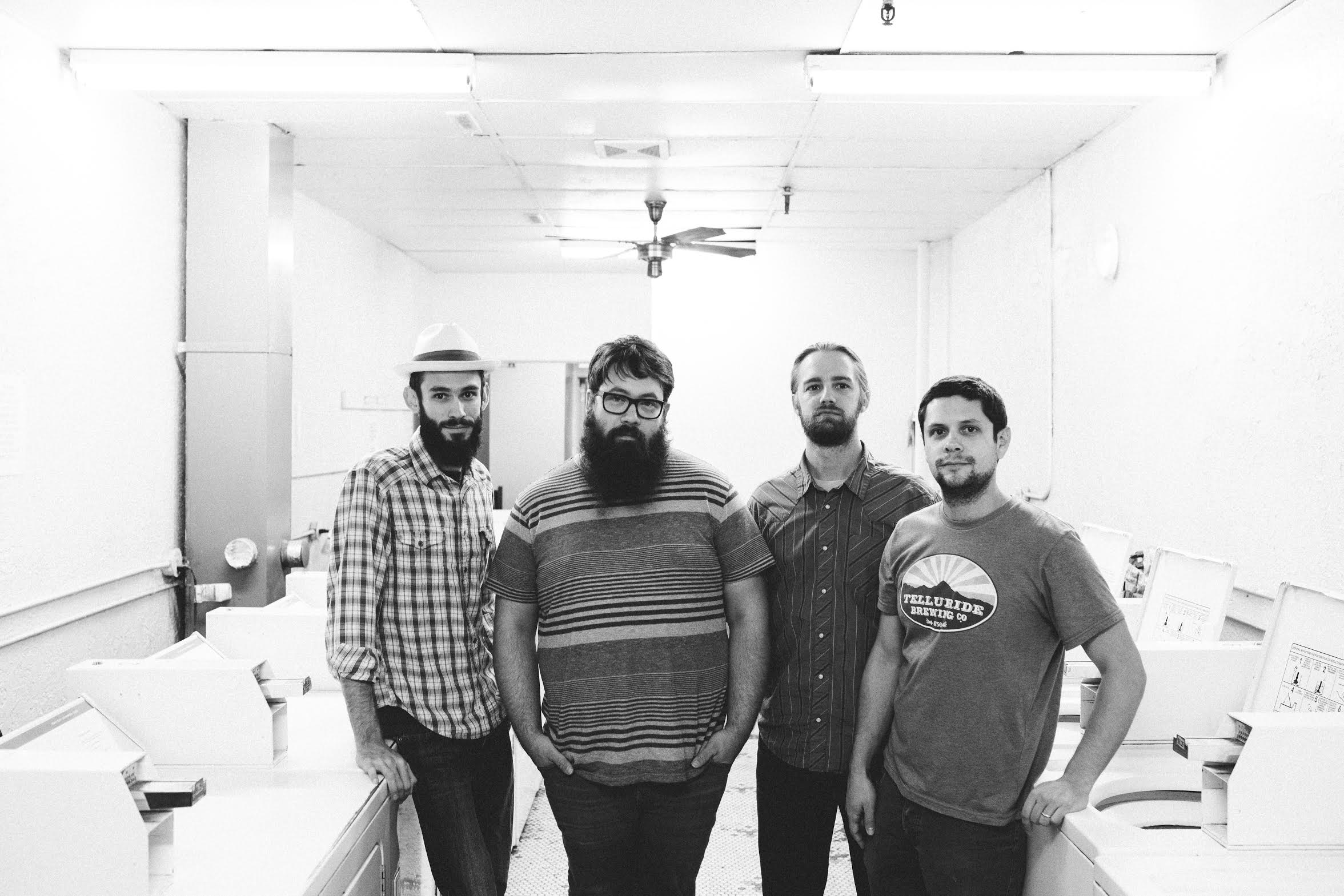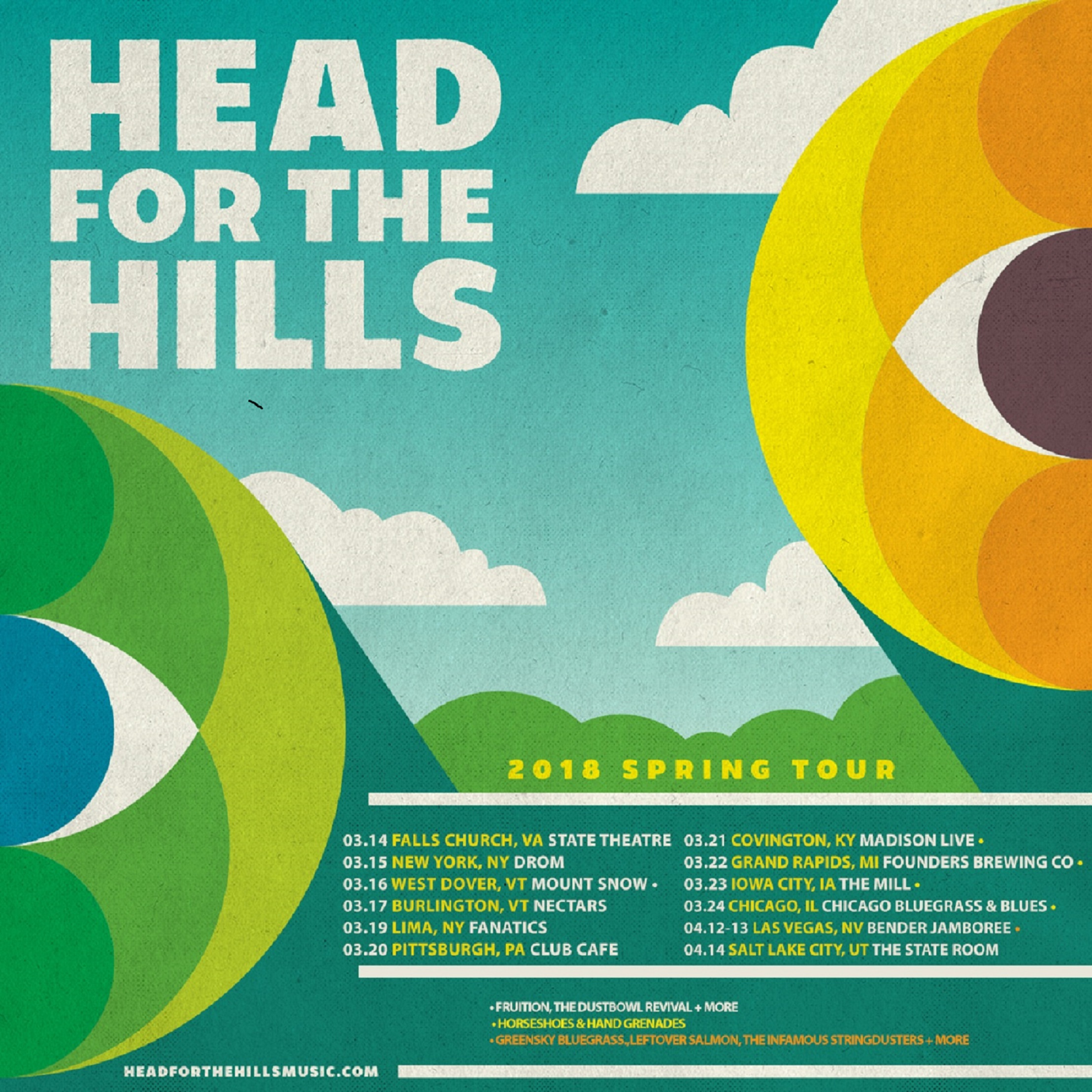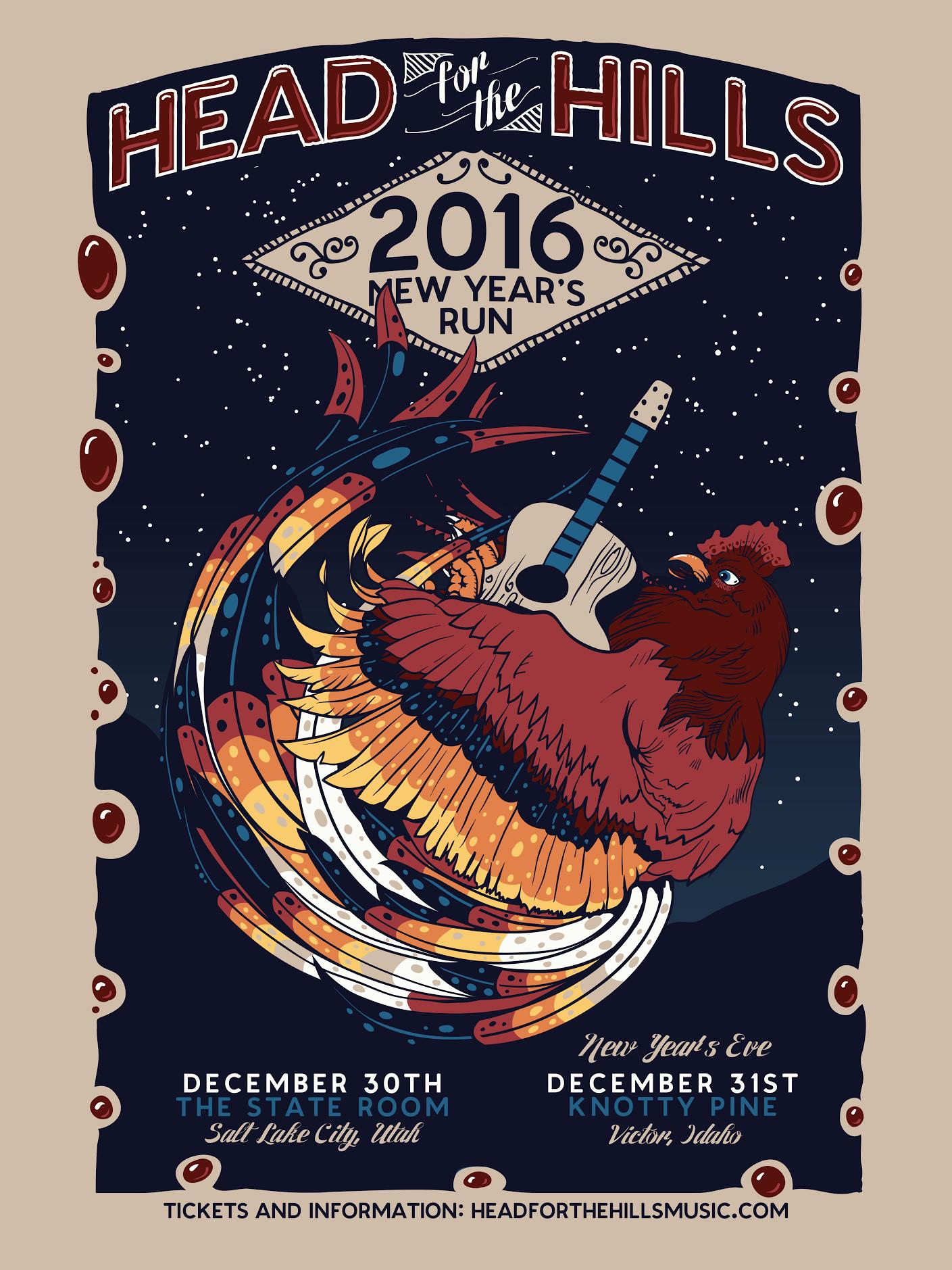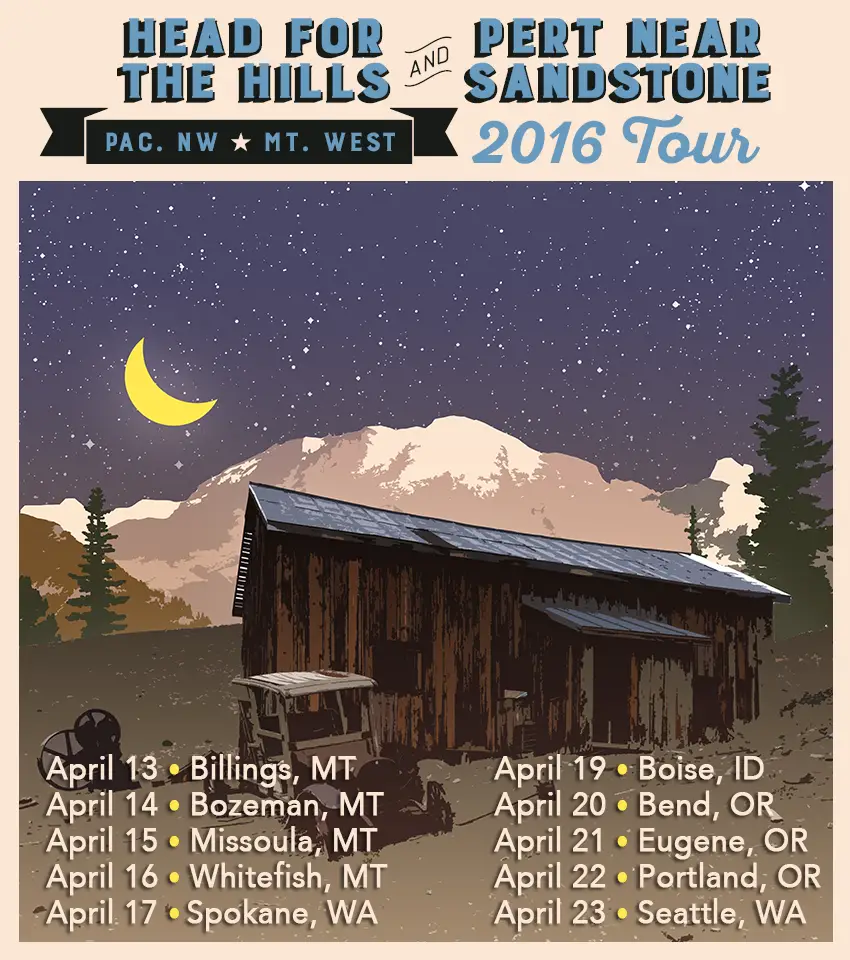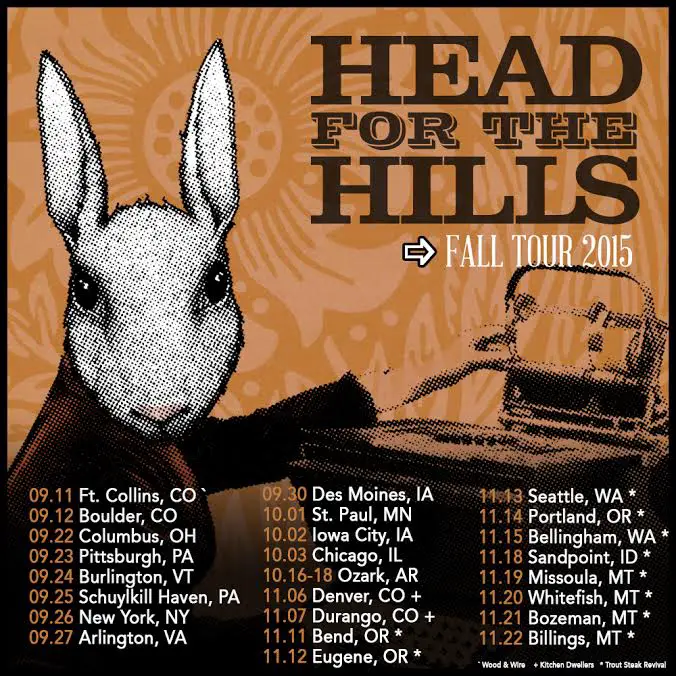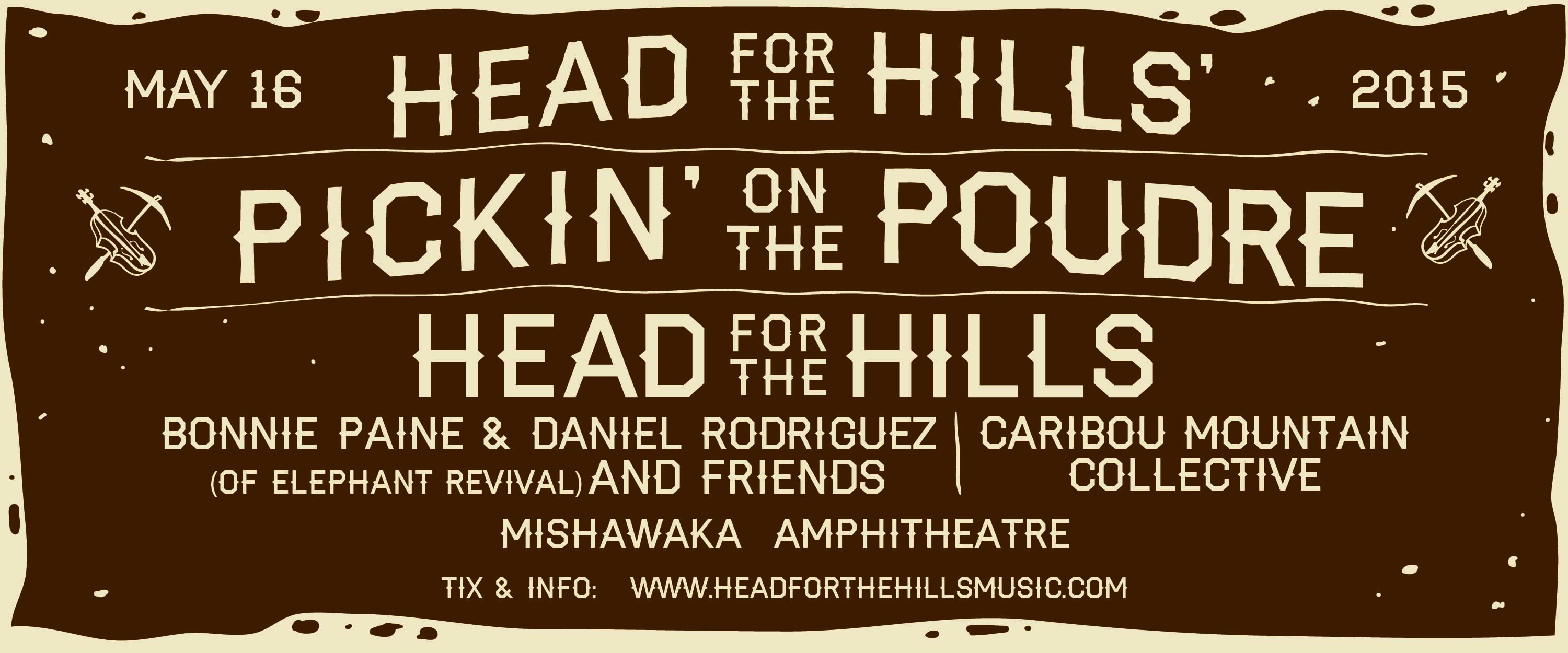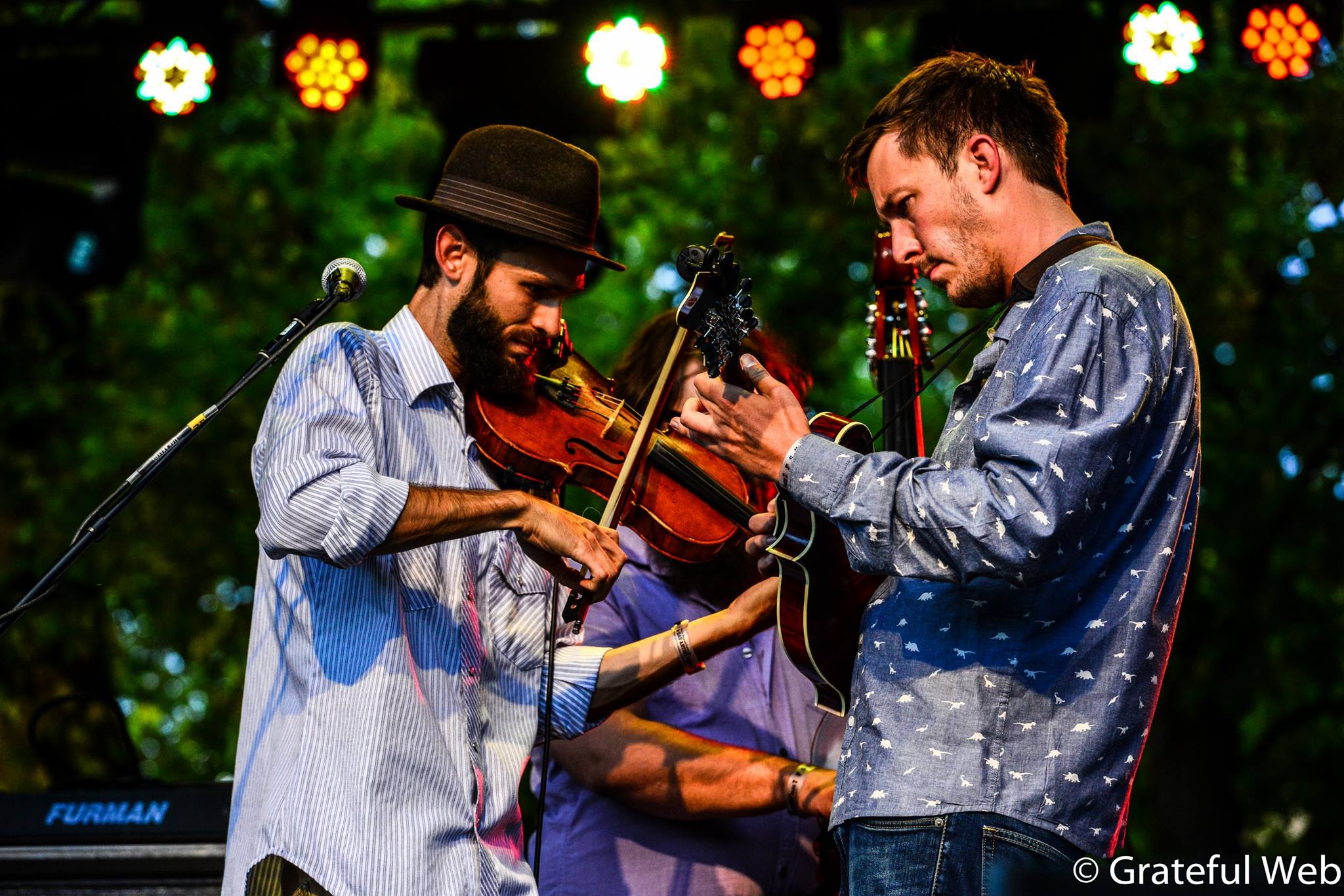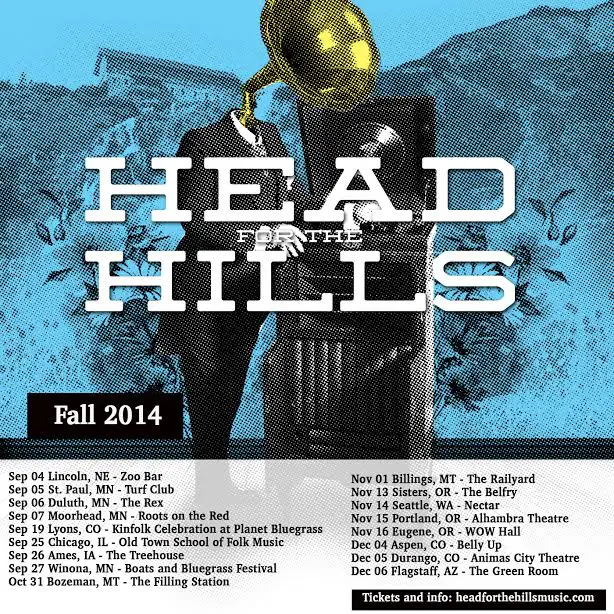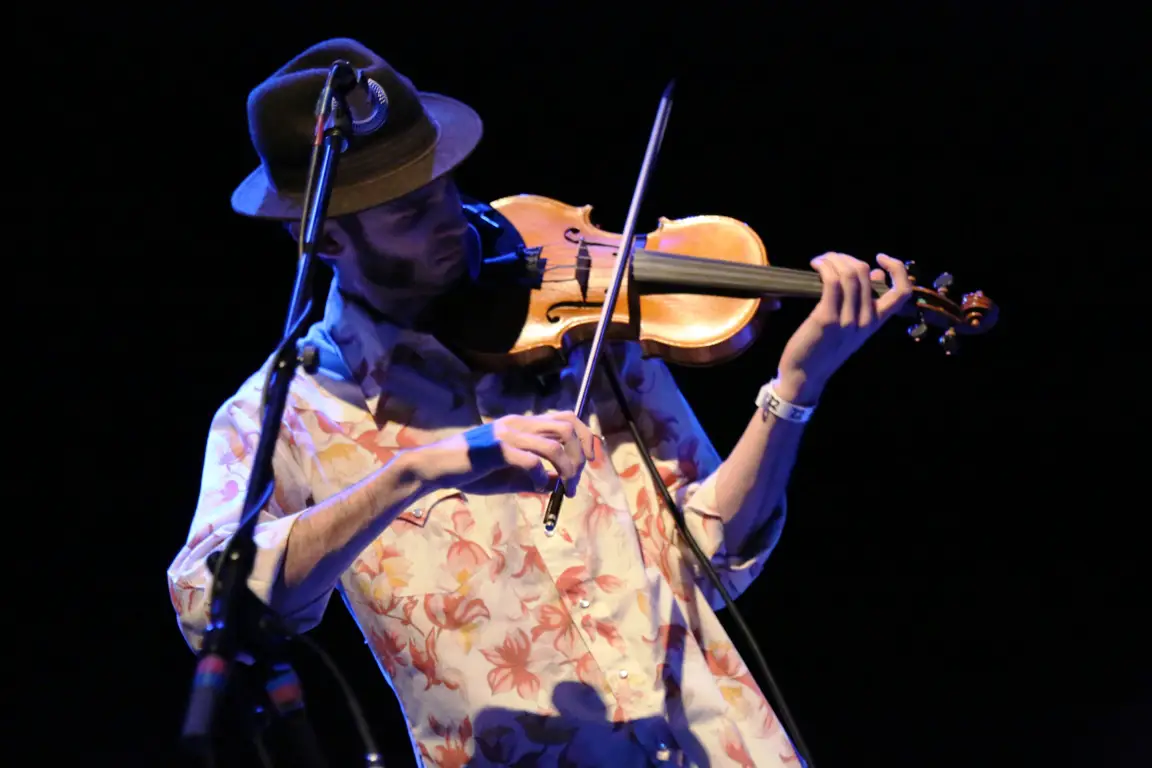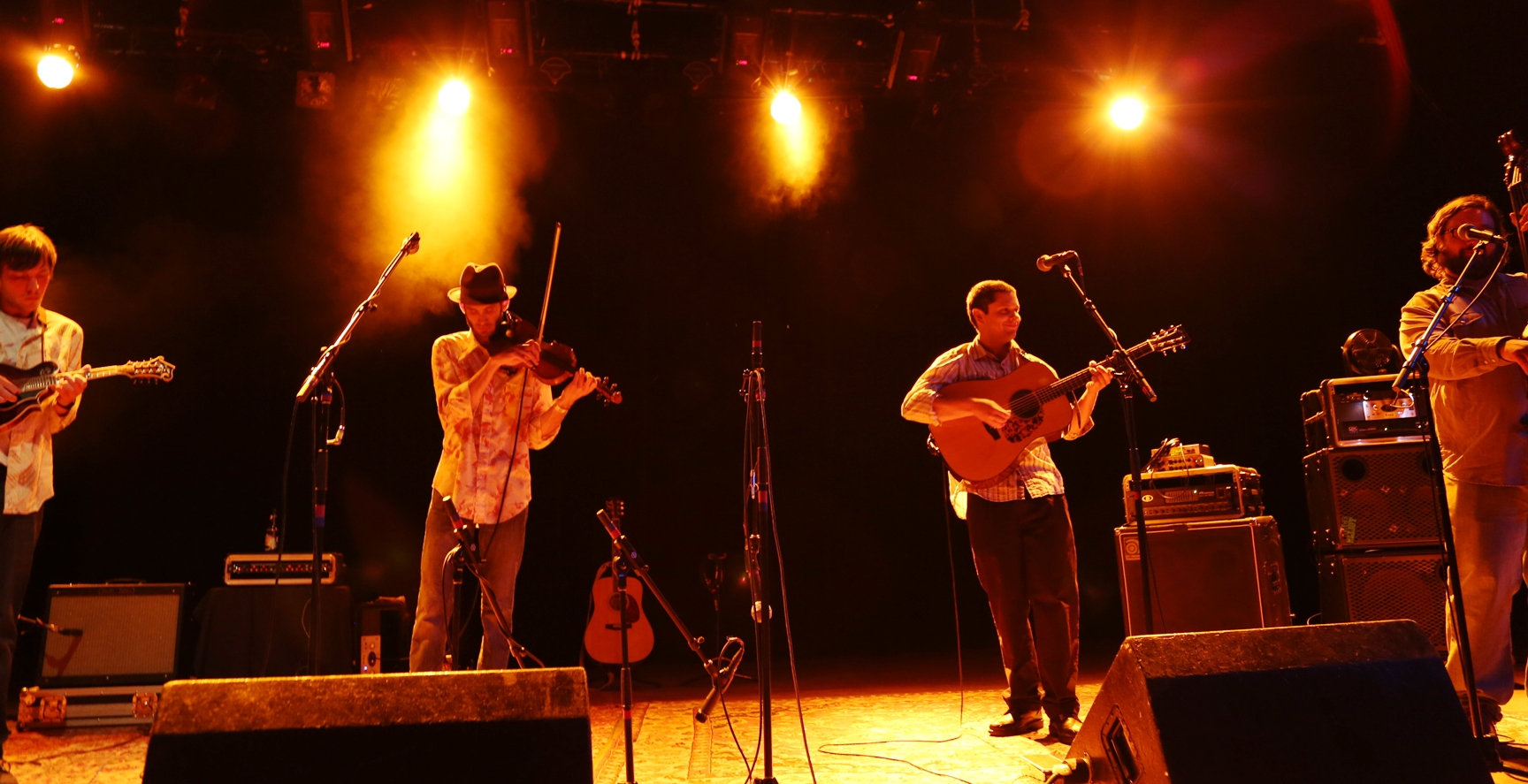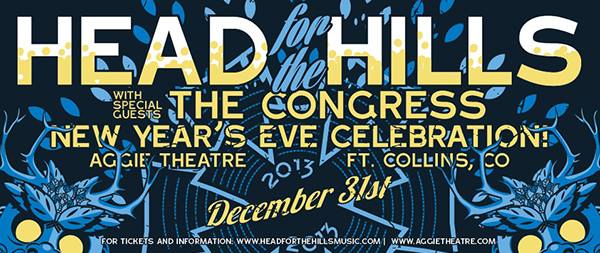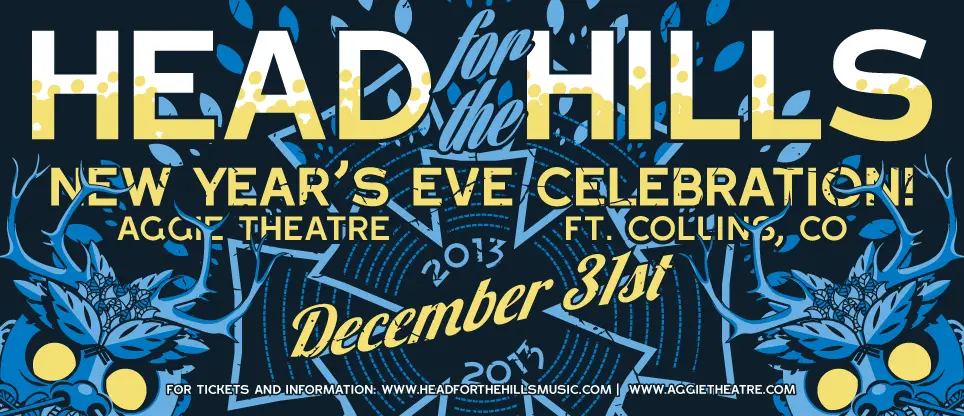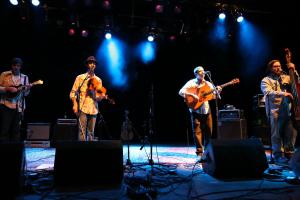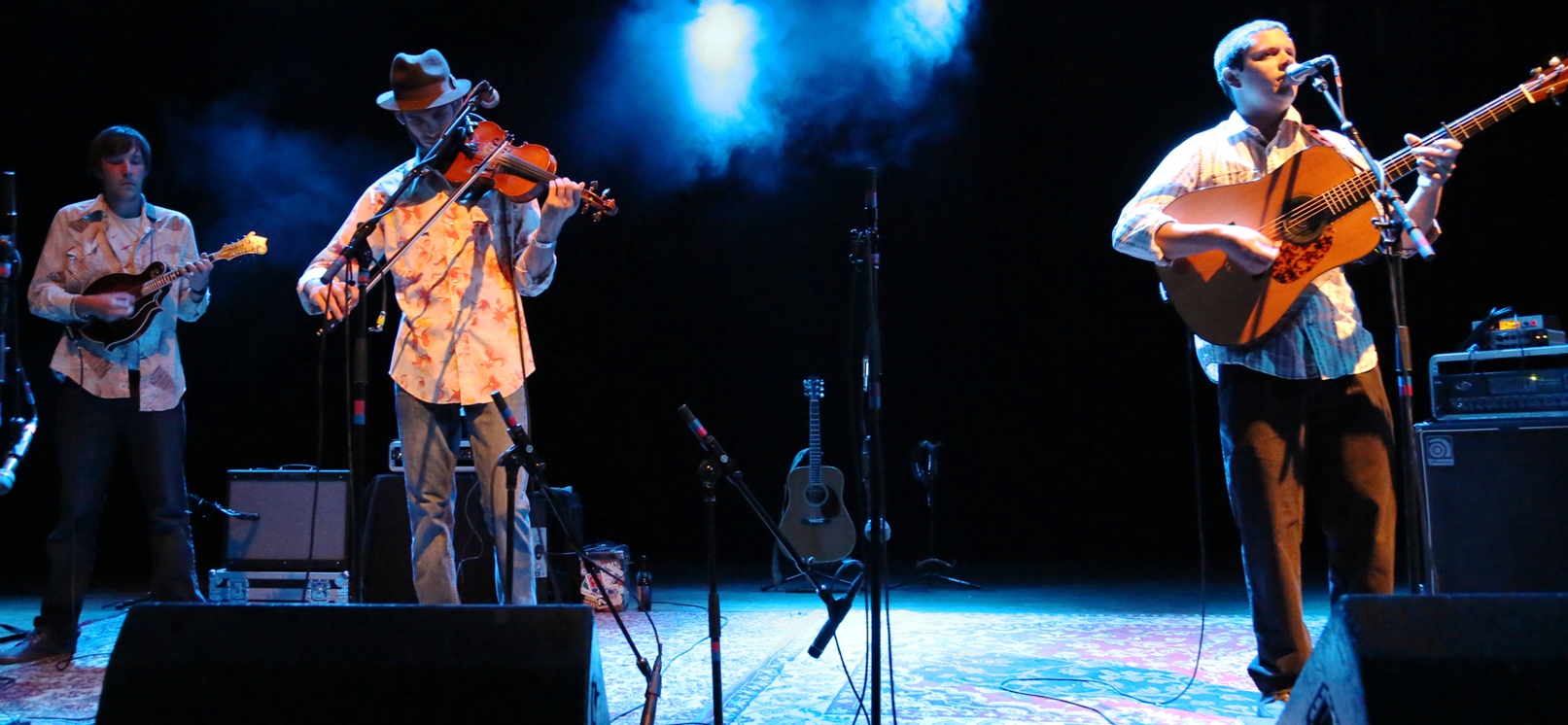Head for the Hills has a simple but continuing dilemma they can’t seem to resolve. Specialists have been hired to no avail and the predicament persists: how does one describe the multifarious music of Head for the Hills? Among the top contenders are catchy turns of phrase like post-bluegrass, progressive string music, modern acoustic noir, and bluegrass bricolage. “On top of modern string music,” (Bluegrass Today), “Cutting edge,” (Drew Emmitt) or “Best in Colorado Bluegrass” (Westword Showcase Readers Poll)—those are up there too. Strip away the artful descriptors and you have a forward thinking group of {mostly} acoustic musicians drawing on eclectic influences, tastes and styles. They didn’t grow up immersed in bluegrass music but came to it later in life, with each other. The result is a sound based in bluegrass that reaches into indie rock, jazz, hip hop, world and folk to stitch together fresh songs that bridge the divide between past and future acoustic music.
Head for the Hills—Adam Kinghorn on Guitar and vocals, Joe Lessard on violin and vocals, Matt Loewen on upright bass and vocals and Sam Parks on mandolin — have been bringing their music, whatever you’d like to call it, to audiences from the Telluride Bluegrass Festival to South by Southwest and a multitude of stages in between since 2004. The band has independently issued two studio records and one live, been featured on NPR Ideastream and eTown, co-released a beer with Odell Brewing Company in May 2013 and charted on the CMJ Top 200 (Blue Ruin, 2013 and Head for the Hills, 2010). Blue Ruin, an all-new album of original material is available now.Head for the Hills has a simple but continuing dilemma they can’t seem to resolve. Specialists have been hired to no avail and the predicament persists: how does one describe the multifarious music of Head for the Hills? Among the top contenders are catchy turns of phrase like post-bluegrass, progressive string music, modern acoustic noir, and bluegrass bricolage. “On top of modern string music,” (Bluegrass Today), “Cutting edge,” (Drew Emmitt) or “Best in Colorado Bluegrass” (Westword Showcase Readers Poll)—those are up there too. Strip away the artful descriptors and you have a forward thinking group of {mostly} acoustic musicians drawing on eclectic influences, tastes and styles. They didn’t grow up immersed in bluegrass music but came to it later in life, with each other. The result is a sound based in bluegrass that reaches into indie rock, jazz, hip hop, world and folk to stitch together fresh songs that bridge the divide between past and future acoustic music.
Head for the Hills—Adam Kinghorn on Guitar and vocals, Joe Lessard on violin and vocals, Matt Loewen on upright bass and vocals and Sam Parks on mandolin — have been bringing their music, whatever you’d like to call it, to audiences from the Telluride Bluegrass Festival to South by Southwest and a multitude of stages in between since 2004. The band has independently issued two studio records and one live, been featured on NPR Ideastream and eTown, co-released a beer with Odell Brewing Company in May 2013 and charted on the CMJ Top 200 (Blue Ruin, 2013 and Head for the Hills, 2010). Blue Ruin, an all-new album of original material is available now.
Purchase Pickin on the Poudre tickets here.





